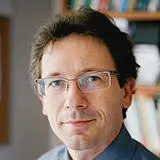The first Prime Minister of independent India and iconic political thinker Jawaharlal Nehru believed that the problems of democracy could only be solved by more democracy, rather than through more institutionalisation and laws.
Professor Madhavan K Palat, editor of the Selected Works of Jawaharlal Nehru, shared this aspect of the leader’s thoughts and dilemmas on democracy at the 2023 Nehru Memorial Lecture titled ‘Nehru’s democratic dilemmas’. This is an annual lecture hosted by King’s India Institute and endowed by the Jawaharlal Nehru Memorial Trust.
Professor Palat said that one of Nehru’s key dilemmas about democracy was the challenge of balancing the vibrant spirit of the democratic movement with the stability of institutions. On the one hand, democracy must be willed into existence through active participation from citizens. On the other hand, democracy will only be stable if it is institutionalised.
Nehru’s answer to this dilemma was not to make more laws but to have more democracy.
The first step to institutionalising democracy was to create a Constitution. Yet, during the process of framing India’s new Constitution, Nehru feared that it would be inflexible and rigid. He was concerned about one generation legislating for future generations. Professor Palat said that although Nehru believed the Constitution must be permanent, he advocated for it to be easy to amend.
Based on his reading of Nehru’s speeches, notes and discussions, Professor Palat explained this contradiction by saying that for Nehru, the core of the Constitution was the creation of an ‘independent sovereign republic’, and that was sufficient to protect democracy. He said, “That was to be immutable, eternal, and never to be compromised under any circumstances.”
Professor Palat said that Nehru was a man who doubted everything he said and often expressed his doubts, and this quality endeared him even to his opponents.
He said: “It is perhaps this range of doubts – doubting everything, doubting himself, seeing the ambiguity in every situation – that made him so popular. Somehow people felt they were included in that area of doubt which he constantly expressed.”
The Nehru Memorial Lecture on 3 March was followed by a debate event on 7 March on the merits of the 'Big Man vs Everyman' styles of writing India's political history. The debate was moderated by Professor Niraja Gopal Jayal with Professors Madhavan K Palat and Christophe Jaffrelot arguing for 'Big Man' historiography and Drs Milinda Banerjee and Anastasia Piliavsky arguing for 'Everyman' historiography.
The debate was partly made possible by grants from the European Union’s Horizon 2020 research and innovation programme for the project on 'India's politics in its vernaculars'.
Watch the replay



